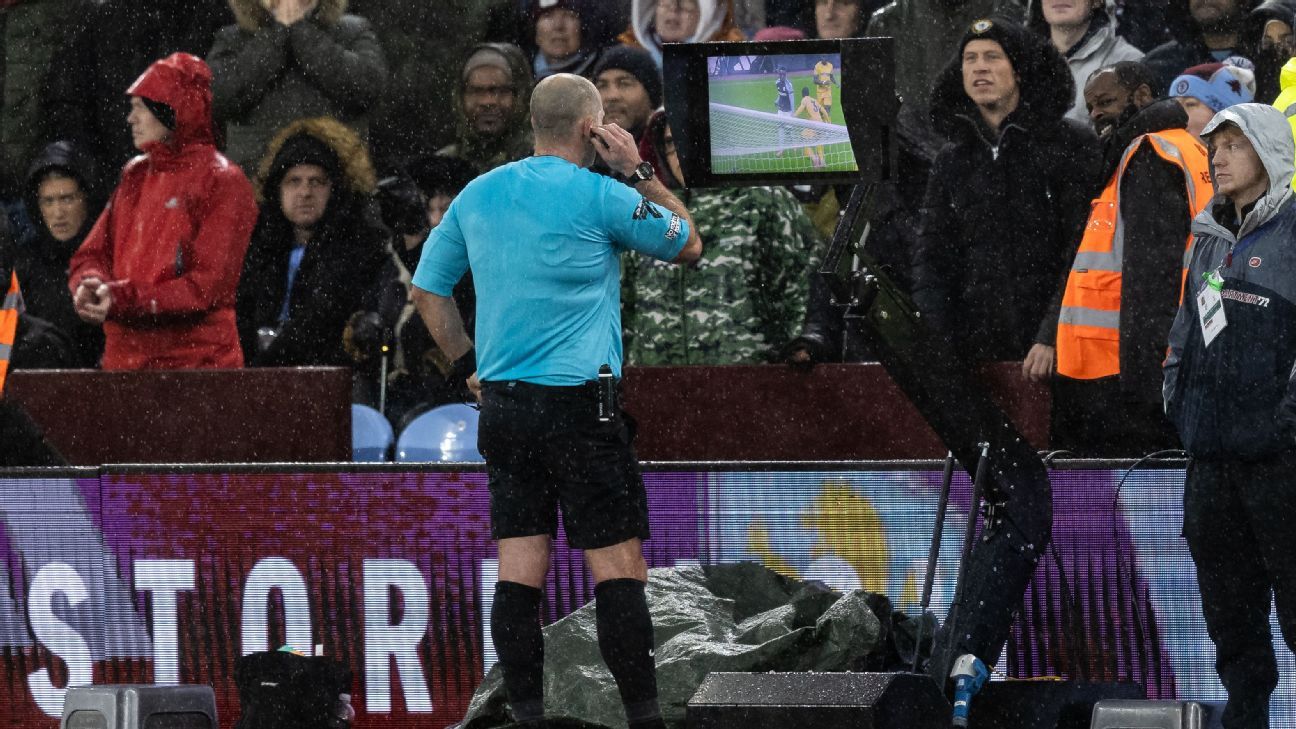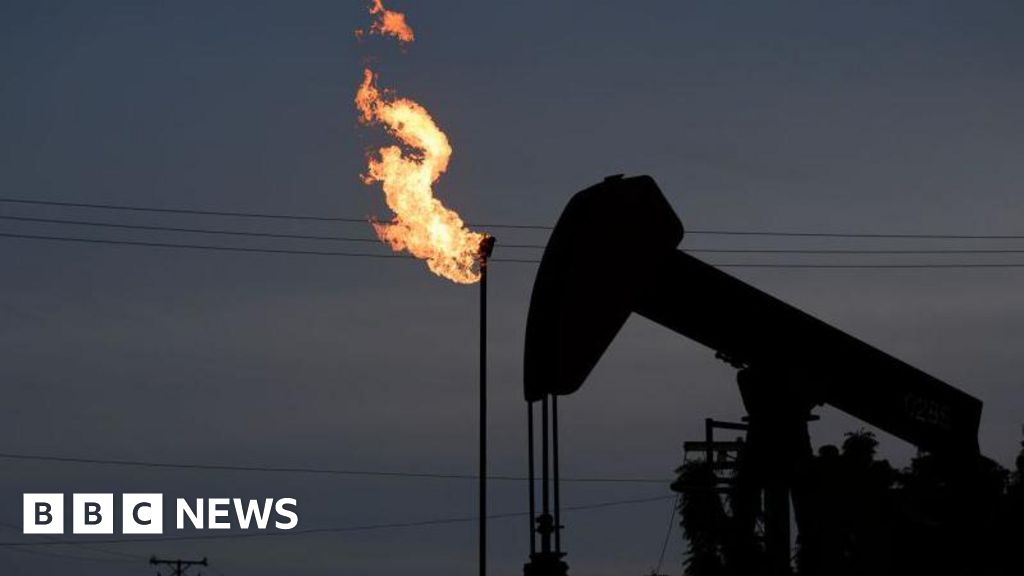
VAR errors fall as Premier League sets ‘model’ for other leagues
- Sports
- February 5, 2025
- No Comment
- 105
The Premier League believes its referees are setting a model for VAR that other leagues want to follow as the latest stats showed video review errors are down 35% on last season.
After 23 rounds of the 2023-24 campaign, the Key Match Incidents (KMI) Panel had logged 20 mistakes, and at the same stage in this campaign 13 have been registered.
The KMI Panel noted that the VAR has incorrectly intervened to change an on-field decision four times this season, one more than in the last campaign. However, there’s been only nine missed interventions, compared to 17 a year ago. The full list of errors this season can be found at the foot of the article.
Tony Scholes, the Premier League’s chief football officer, insisted it shows that huge strides have been made, despite several controversial high-profile incidents.
“The feedback that I’m getting is that the vast majority of clubs recognise significant progress in this area,” Scholes said. “Other leagues around the world all look up to the match officials in this country, and indeed the VAR process and VAR officials in this country as a model that they would like to follow. Sometimes it doesn’t feel that way here in England, but that’s the message that I get from people around the world.”
On Tuesday, Real Madrid coach Carlo Ancelotti said LaLiga should look to bring in referees from England to improve standards, a sentiment which is also shared by Los Blancos president Florentino Pérez.
The KMI Panel has five members; three former players plus one representative each from the Premier League and referees’ body the PGMOL.
“Assessments of the officials used to be carried out by the PGMOL themselves, and the accusation was that they were marking their own homework,” Scholes explained. “The level of credibility of the accuracy results was questioned by clubs and everyone else in the game. So we thought it was important to introduce some kind of independence and objective measure of the accuracy.
“[The Panel members] go through rigorous training exercises in the laws of the game, and the interpretation by the match officials on those laws. I’m not going to suggest that this is perfection, it absolutely isn’t. But it’s as good as we can get to provide an objective measure of performance by which we can benchmark how the officials are doing season by season.
“Nobody underestimates the significance and the impact of one single error. We know that one single error can cost clubs points, can cost them results, can cost managers positions, potentially players their place. They are significant, they’re hugely important in a game of such high stakes. So our absolute objective is to reduce that number down as far as we can, but I think we should also just sort of recognise a couple of points.
“That’s 70 VAR interventions in 239 games, less than one in three games. It shows that the interference of VAR is perhaps not at the level that many of us perceive. And in the view of the KMI Panel. and I will just say it is their view so people are entitled to differ, 66 of those interventions have been correct.
“It’s absolutely right that we keep pushing these officials, we push them to be as good as they can be, but it’s also right that we acknowledge the progresses that is being made. At the league we do that because we do not get the best performance out of people who we are constantly criticising, constantly beating up over errors made. It’s right that we should recognise the progress and I see that progress in the results.
“[Referees’ chief] Howard Webb and his team are working day in, day out, on the training of the team and the VAR. They are focused on a smaller number of VARs to ensure the efficiency and the accuracy is as good as it can be. A pool of specialist VARs have come from existing referees, but also referees who are operating further down the pyramid. There’s a pool of a dozen who’ve operated over 85% of all Premier League games this year and that’s part of the reason for why there’s been an improvement in accuracy and efficiency.”
Scholes conceded much work needs to be done to improve the experience for supporters, though said the average delay caused by a VAR review has fallen by 31 seconds to 40 seconds this season.
“It comes at an inevitable cost and that’s the delays to the game caused by a VAR intervention,” Scholes added. “So our target is to reduce those delays as much as we possibly can.
“Our objective is to make sure that supporters in the stadium have at least as much information, at least an equal experience to those at home to make sure that they’re not sat there in ignorance.
“So we introduced new protocol for showing more replays on the giant screens. We’re still not there. We want to get to a place where we have full visibility and full audio of the conversation between the referee and the VAR.
“None of us here at the league believe it’s good enough and we’ve a long way to go to improving it. We’re constrained by FIFA, but we should improve it to the extent that we are able and authorised to do so. Our view on this is that the more people can see, the more people can understand.”
Stuart Attwell became the first referee to announce the outcome of a VAR review to the stadium crowd in the Carabao Cup tie between Tottenham Hotspur and Liverpool last month. Scholes confirmed that the plan is to roll that out to the Premier League at the start of next season.
“The plan is to see how that goes in the following rounds of the Carabao Cup with the intention, the desire to introduce it into Premier League next season,” Scholes confirmed.
Scholes also revealed that “significant progress” has been made with testing of semi-automated VAR offside technology (SAOT) in recent weeks, adding that it is still planned to be introduced this season.
“We are still testing it, but we are making significant progress,” Scholes revealed. “Now I’m hopeful that at some point this season we will be able to introduce semi-automated technology but I repeat the points I’ve made a number of times. We are not going to introduce it if we’ve got any doubts at all with regards to its operation.”
All 13 VAR errors in the Premier League this season
Incorrect interventions (4)
1. AFC Bournemouth 1-1 Newcastle United, Aug. 25
Dango Ouattara goal disallowed for handball (’90+2)
2. West Ham United 2-1 Manchester United, Oct. 27
Penalty awarded for a foul by Matthijs de Ligt on Danny Ings (’90+2)
3. Everton 0-0 Brentford, Nov. 23
Christian Nørgaard sent off for serious foul play (’39)
4. Nottingham Forest 3-2 Southampton, Jan. 19
No Chris Wood offside offence on goal (’64)
Missed interventions (9)
1. Man United 0-3 Tottenham Hotspur, Sept. 29
Serious foul play, red card to Bruno Fernandes (’41)
2. Aston Villa 2-2 Crystal Palace, Nov. 23
DOGSO, red card not given to Ian Maatsen (’65)
3. Everton 4-0 Wolverhampton Wanderers, Dec. 4
Abdoulaye Doucouré offside offence on goal (’72)
4. Nottingham Forest 2-1 Aston Villa, Dec. 14
Penalty not awarded. Foul by Elliot Anderson (’34)*
5. West Ham 1-1 Brighton & Hove Albion, Dec. 21
Serious foul play, red card not given to Pervis Estupiñán (’84)
6. Brighton 0-0 Brentford, Dec. 27
Violent conduct, red card not given to João Pedro (’75)
7. West Ham 0-5 Liverpool, Dec. 29
Penalty not awarded. Foul by Alexis Mac Allister (’35)
8. Ipswich Town 0-2 Brighton, Jan. 19
Penalty not awarded. Foul by Wes Burns (’11)
9. Wolves 0-1 Arsenal, Jan. 25
Serious foul play, red card to Myles Lewis-Skelly (’43)
*Panel stated the penalty may not have been awarded due to a prior foul but this should have been decided on review.
#VAR #errors #fall #Premier #League #sets #model #leagues








